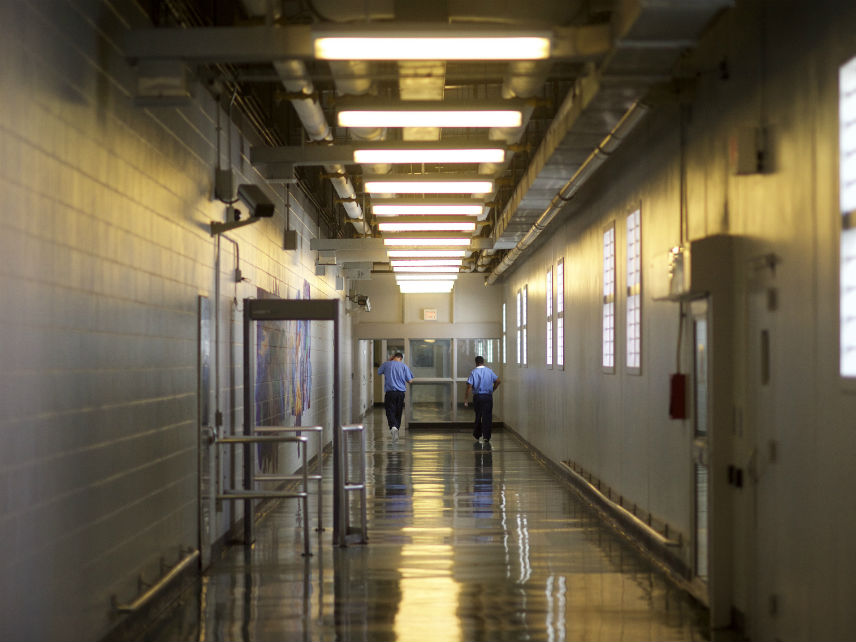Pennsylvania's New $4 Million Prison Mail System Brings Privacy Concerns
Civil liberties lawyers worry that sensitive documents could end up in the wrong hands.

Rather than allow inmates to receive personal letters, drawings from their children, photographs, birthday cards, and other kinds of mail directly, the Pennsylvania Department of Corrections will use a new service that will cost taxpayers at least $376,000 a month, or well over $4 million a year.
As explained on its website, the department implemented the new policy after staff members were reportedly sickened by an unknown substance, which prompted the announcement of a statewide lockdown in August. Mail will first go through a Florida-based service called Smart Communications. The company will scan the mail and then send black and white digital copies to inmates. The original mail, including photographs, will then be held for 45 days and subsequently destroyed. The electronic mail will only be saved for seven years. Mail related to legal matters and other official documents will be forwarded to the institutions, opened in front of the inmate, copied, and the originals will be destroyed after a 15-day retention period. Inmates will not be able to keep the originals.
The department maintains that the process will help cut down on a the amount of drugs smuggled into state prisons, even documenting drug finds on various inmates. It's also a good business opportunity for private companies seeking to contract with prisons. Smart Communications already provides limited email technology and a teleconferencing system to prisons, and now touts its mail system as completely eliminating postal mail. Bloomberg quotes Corrections Accountability Project Director Bianca Tylek, who believes digitized mail services could earn private contractors "more than $180 million annually."
But if cost is of little concern, perhaps privacy should be. The Pennsylvania chapter of the American Civil Liberties Union, the Pennsylvania Institutional Law Project, and lawyers at private firms allege that the new system will threaten the confidentiality of sensitive legal documents. Prior to the new system, prison staff opened mail in front of prisoners, searched for contraband, and then handed the documents over. Now, the added steps of photocopying documents and retaining the originals for an amount of time have the possibility to impact cases. Some lawyers have already complained about legal documents sitting on desks and being thrown in the trash. Some have even voiced concerns that the documents could end up in the hands of a legal opponent or prison staffers who named in an inmate's case.
To no one's surprise, the service has already been criticized for giving inmates copies that are either unreadable or incomplete. Inmates have also voiced their own privacy concerns as even more strangers will now have intimate access to their personal lives.
Per the department's own finds, drugs like synthetic cannabinoids (K2), suboxone, and tobacco were found on 15 inmates between September 28 and October 3. If the rate of drug finds were to remain consistent each week over the course of a year, it would appear that the state of Pennsylvania has decided to implement a multi-million dollar service that affects the privacy of over 50,000 inmates due to the actions of less than one percent of the state prison population.


Show Comments (9)